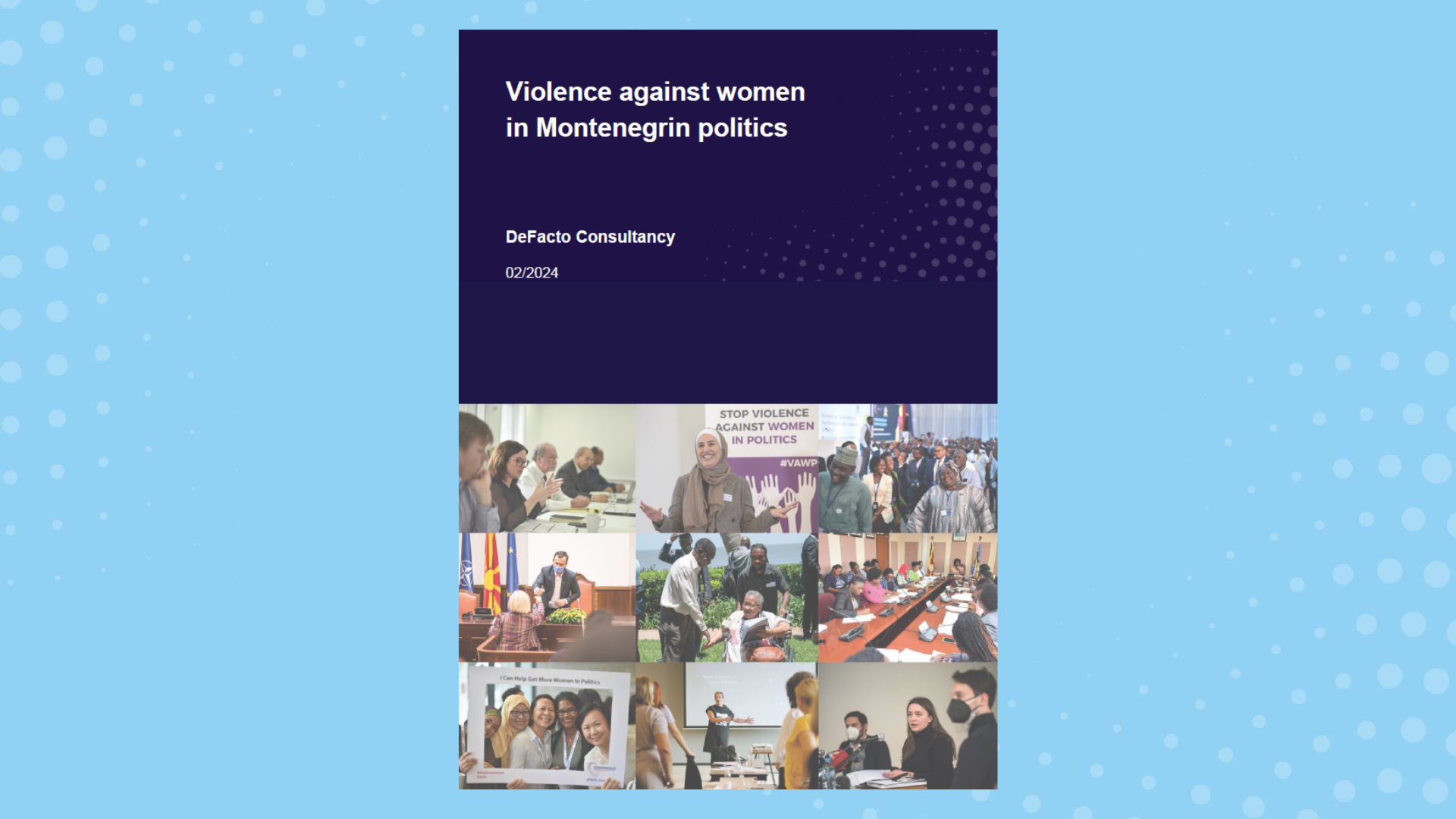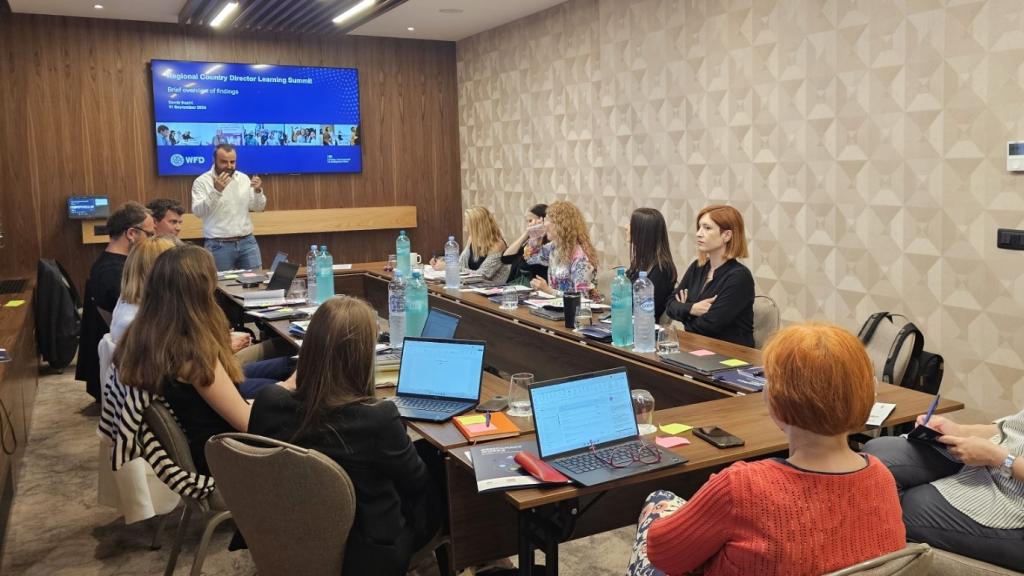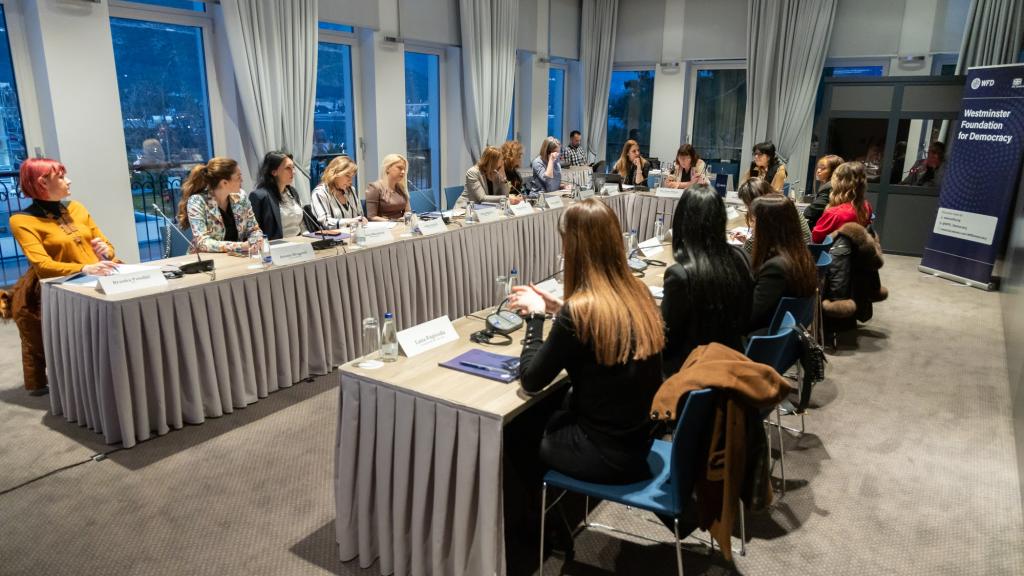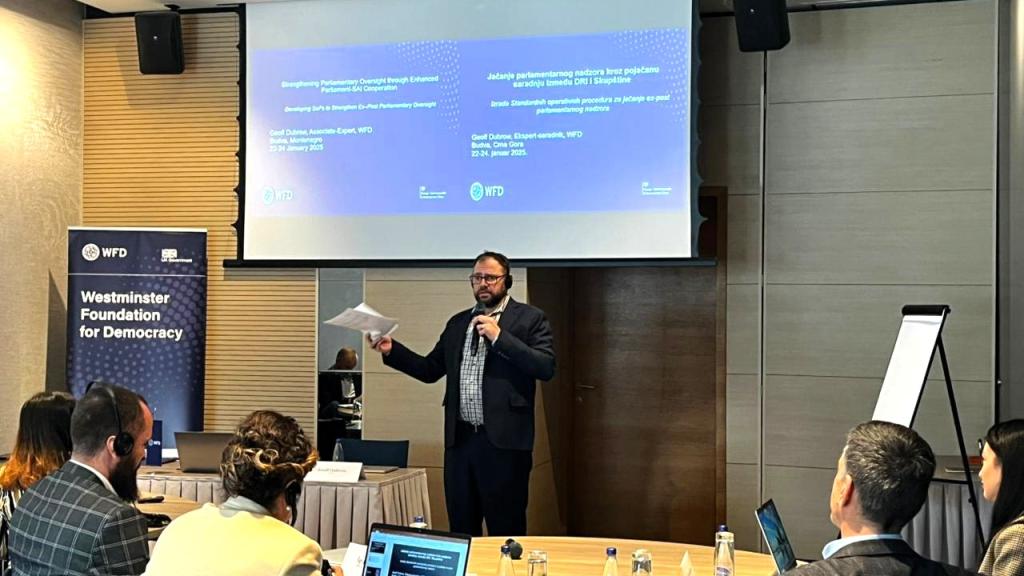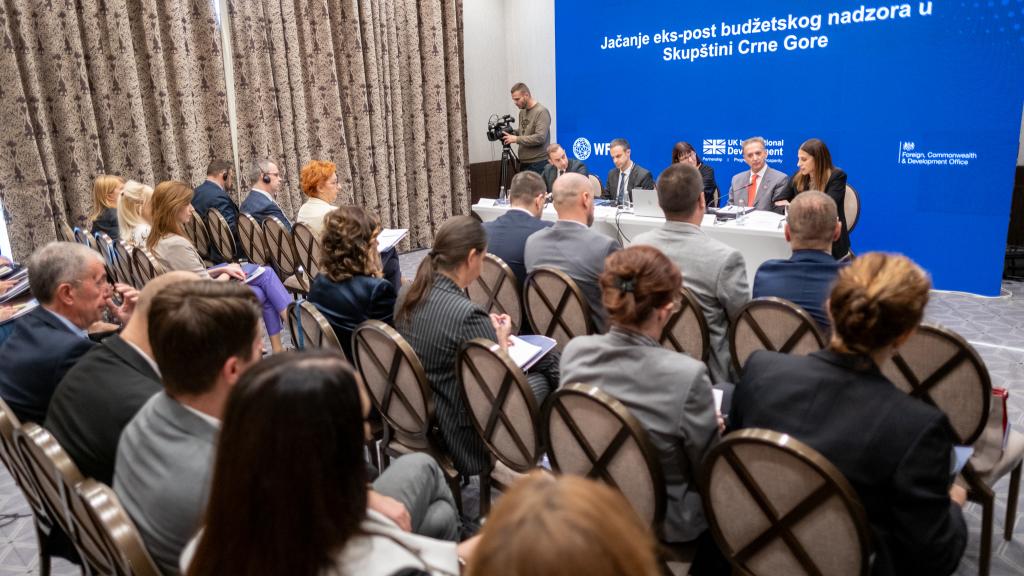Violence against women in politics is a globally recognised phenomenon that deeply impacts different political landscapes and influences the participation of women in all levels of power. It is especially present within societies that experience an increase in the number of politically active women. Montenegro is no exception to this rule, as women in politics experience violence and hate speech in both the physical and online spheres solely because they choose to become public figures.
Since this ongoing struggle needs to be tackled properly, the Westminster Foundation for Democracy office in Montenegro has established an initiative to develop a Comprehensive Study on Violence Against Women in Montenegrin Politics. The study aims to shed light on the prevailing situation and offer insights and a deeper understanding of violence in politics within Montenegrin society.
"Violence against women in politics is widespread. I would not be surprised if women who would like to engage in politics think like – why would I do this to myself, look what other women in politics go through.” (an interviewee in a Study)
The study's key objectives include assessing the current landscape of violence against women in politics, amplifying the voices of female politicians, and formulating actionable recommendations.
It adopts a multifaceted approach, encompassing various methodologies to gather comprehensive insights. It includes a nationwide public opinion survey that showcased that half of the respondents (62.4%) recognise that the problem of violence against women in politics exists in Montenegro.
"The most frequent attacks against male politicians are political attacks. The most frequent attacks against female politicians are hate speech attacks.“
(an interviewee in a Study)
Additionally, a segment of the study features interviews with politicians from diverse backgrounds and focus groups involving political party youth wings. They give insights to the personal perspective of politicians who deal with the violence in their working environment.
The study also presents results of media monitoring of select portals as well as the analysis of social media which shed a light on the violence that is expressed through these means.
By delving into public sentiment, political perspectives, and media portrayals, the study also identified barriers and proposed effective solutions.
"Quotas, compliance with the law, stronger authorities for the gender equality committee, stopping the divisions to male and female committees in the Parliament… all of this should be done.“(an interviewee in a Study)
In this way, political actors are given set of recommendations grounded in a thorough analysis of Montenegro's political landscape, drawing from international best practices. They provide pragmatic strategies to address identified challenges, fostering a more conducive environment for women in politics.
Ultimately, the Comprehensive Study on Violence Against Women in Montenegrin Politics represents a significant step towards fostering gender equality and inclusivity in the political sphere. Through collaborative efforts and evidence-based interventions, we aspire to catalyse lasting societal transformation.
Montenegrin version
